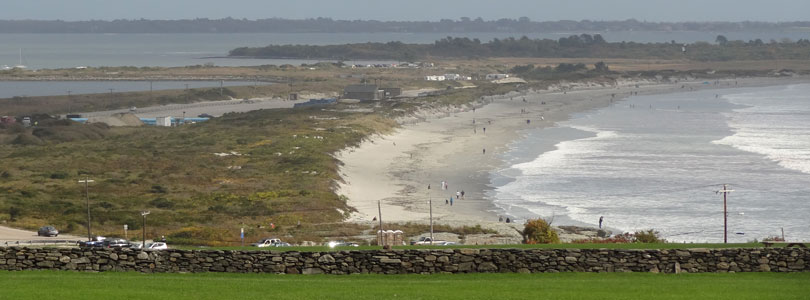The Irrational and Rational in Real Estate and Climate Change
If this is correct, it would seem that — whatever they may tell politicians and pollsters — many Rhode Islanders don’t actually believe in global warming when it comes to putting their own skin in the game:
[box type=”tick” style=”rounded”]Please consider a voluntary, tax-deductible subscription to keep the Current growing and free.[/box]
“The price of any asset, be it commodities, gold, stocks, depends fundamentally on people’s beliefs,” said Lint Barrage, assistant professor of economics and environmental studies at Brown University. “If people are excessively optimistic about the future value of an asset, there is potential for mispricing, and bubbles and overinvestment.”
Speaking Friday at a one-day conference at Brown on the political and economic consequences of climate change, Barrage described her research on the coastal property market, which included going door-to-door in Rhode Island and interviewing homeowners about flood risk. People with homes in federally designated flood zones tended to underestimate the risk of flooding when compared with people who lived further inland, she found.
“The reason all this matters is that markets cannot price risks efficiently if people don’t believe in them,” she said.
And if the risks of climate change aren’t being accurately factored into prices now, then it could mean a steep drop in values somewhere down the line.
Of course, people’s beliefs and the decisions they make based on them are complicated. If a waterfront property is highly desirable and brings prestige right now, people may tend to discount the risk of owning it in the long term even if they fully believe that climate alarmists are not actually alarmists.
But then, on the other side of the ledger, one has to consider that — consciously or not — people assess risk to some extent on what they observe, rather than what they are told to expect. Thus, they may pick up on the fact that warnings about sea-level increases tend not to match our experience. They may also pick up on the fact that, when the alarmists try to present scary scenarios, they have to go way back in the past or project way out into the future.
In short, one can’t rule out the possibility that people are right to place these bets as they do.



